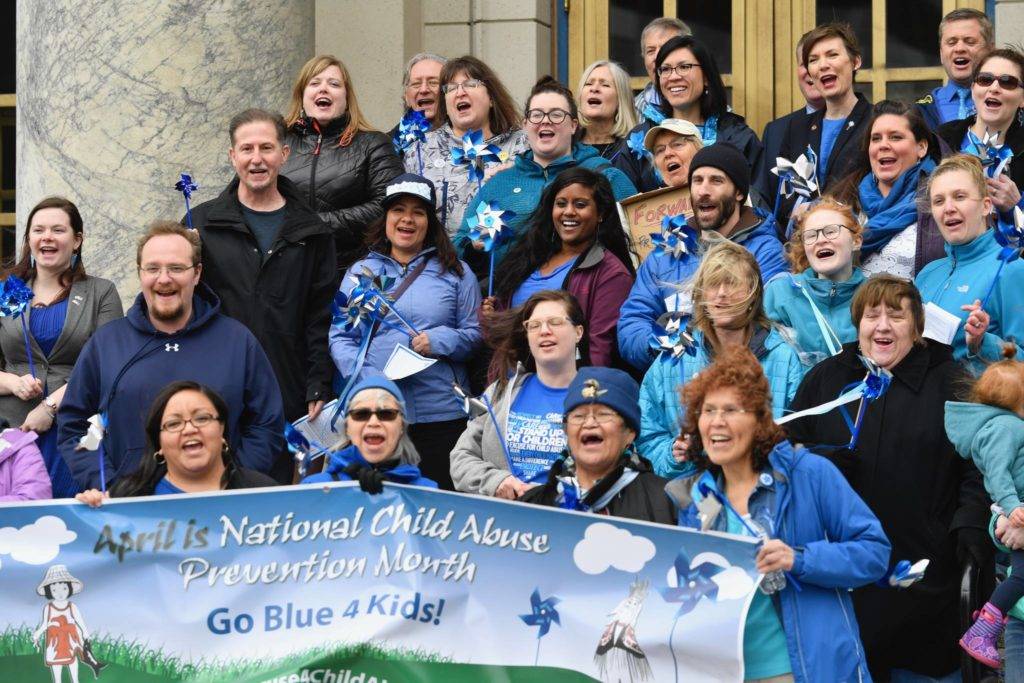April is Child Abuse Prevention Month, and with the quarantine isolating many kids at home, away from schools, many organizations are worried that many cases of abuse will go unnoticed and unreported.
“I think this health pandemic is going to become a child abuse pandemic,” said Alyssa Mrozek, a victim services assistant with Southeast Alaska Family Evaluation Child Advocacy Center. “Kids aren’t having access to adults at school that they can disclose to.”
Mrozek said that during the summer, when children are out of school, child abuse reports typically drop by roughly 30%, qualifying that that was a ballpark figure. Child abuse rates in Alaska are traditionally among the highest in the United States, Mrozek said, owing to factors such as isolation and high rates of substance misuse.
LCCC isolating infected staff, distancing inmates as coronavirus spreads
“As more kids are spending more time at home with more and more stressed out parents, that’s going to lead to an increase in abuse cases,” Mrozek said. “No. 1 is check in on family and friends and make a report if anything seems off.”
Mrozek said that there are also concerns about abusers using the quarantine to mask abuse, with Office of Child Services guidelines limiting in-person contact to the maximum extent possible.
“You could have a parent saying they’re displaying symptoms when they’re really just trying to hide something,” Mrozek said. “You never know.”
Mrozek had suggestions for families going through quarantine to ease tensions.
“Keeping kids on a routine or a schedule is really important for reducing the confusion and chaos and misbehavior.It might seem difficult at first to stick with the schedule,” Mrozek said. “It’s OK to be a little more flexible right now. It’s OK to let kids have a little more flexibility. It’s OK if you let up and let kids do things that they wouldn’t normally do.”
Kids, too, can protect themselves by having a few trustworthy adults in their lives that they can rely on, Mrozek said.
State reports 3 new cases for Juneau
“There’s a lot of great resources that the Alaska Children’s Trust is putting out. Try to stay busy. Help out your parents when you can. We’re all in this together,” Mrozek said. “One of the most important things we always tell kids and caregivers is we always tell kids to be able to identify five safe adults to talk to. The biggest thing is for kids to be able to identify those five adults.”
OCS guidelines, according to an FAQ available on their website, have restricted all in-person contact except for high-risk, high-priority operations, such as responding to reports of harm, emergency removals, emergencies in foster homes or taking children to critical appointments.
“It’s really tough right now. Check in with friends, family, people with kids,” Mrozek said. “If anything sounds or looks weird, you can always make a report. If you suspect it, or have reasonable reason to suspect it, you can report abuse.”
Mrozek said that while all of SAFE’s events for Child Abuse Prevention Month had been canceled with the quarantines in effect, they were working to hold online events and distribute materials for children through the Juneau School District’s student meals program.
• Contact reporter Michael S. Lockett at 757.621.1197 or mlockett@juneauempire.com.
If you suspect child abuse
Call: 1-800-478-4444 or email ReportChildAbuse@alaska.gov.

